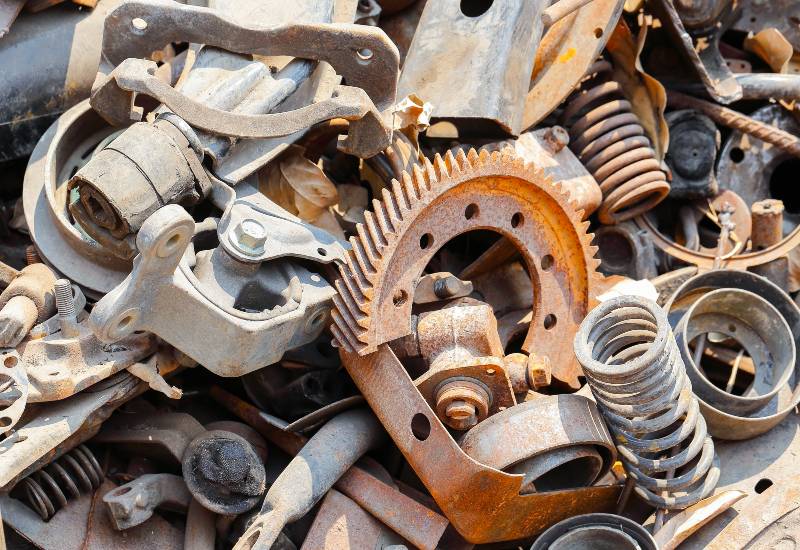The Importance of Recycling Metal
Recycling Metal Importance
The recycling symbol is prevalent on plastics, but not so much on metal. This doesn’t mean that recycling metal is not important or less important than recycling plastics. What this does mean is that there needs to be more education about recycling metal and we’re here to provide that for you.
What is Metal Recycling?
Recycling metal is the process of collecting the waste metal, processing the waste metal, and then creating a new material from the waste metal. The recycling of metals is increasing for many reasons, but one of the most influential reasons to recycle metals is that its properties are not degraded through the recycling process.
Why is it Important to Recycle Metals?
Now that you have a better understanding of what metal recycling is, we want to share some reasons as to why it is important to recycle metals.
- Preserve Natural Resources
When metal is recycled, virgin metal is not produced meaning that the virgin metal can stay in the ground and that coal and iron ore are preserved. By eliminating the use of coal in the production of virgin metals global greenhouse gas emissions will be reduced from the 43% that currently comes from the use of coal.
- Less Use of Raw Materials
When metals are recycled their original properties are maintained. This means that the only virgin metal that needs to be produced is the increase in demand of metal needed. The only metals that cannot be recycled are radioactive metals and toxic metals.
- Offsetting Carbon Emissions
Many companies now have a “zero to landfill” goal and recycling goes a very long way to help companies achieve this goal. Recycling is an alternative to other forms of disposal and cuts down on emissions and air pollution. An example of this is that one tonne of aluminum that is recycled saves nine tonnes of CO2 emissions from being released. That is a 900% savings!
- Saves Money
Recycling is cheaper than disposal which in turn makes your production costs less. Being that metals don’t degrade in integrity during recycling, there is no need to not recycle your metals for production.
- Industry Standards
Companies are expected to recycle all materials where possible. Soon there will be professional standards that will require companies to recycle all possible materials. Start working to meet these standards now before they are required.
How to Recycle Metals?
There are seven stages to being able to recycle metals: collection, sorting, processing, shredding, melting, purification, and solidifying of the metal. The collection process is where all the eligible scrap metal is collected. The sorting process is made easier if the metal is sorted as it is collected. Separate containers should be used for different types of metals with only high quality (at least 50% metal) metal being placed in the container. After the metal is separated it is processed by compacting it to condense space. The next step is to shred the compacted metal into smaller pieces with more surface area allowing it to melt quicker. Each metal is then melted according to its melting point. The purification step is done to ensure that the final product is free of impurities and of the highest quality. The molten metal is then cooled and solidified so that can be used again.
Which Metal can be Recycled?

This is the biggest question that people face when beginning to recycle metal. Here is the beginnings of a list to get you started:
- All ferrous metals
- Non-ferrous metals of copper, zinc, and aluminum,
- Precious metals such as gold, palladium, silver, and platinum.
Another good reference point is that all metals can be recycled except for radioactive and toxic metals.
The Advantages of Metal Recycling
Recycling metal means there is more energy and more profits. Recycling metals doesn’t create energy, but it does save energy in the process from mining the metals to having a usable metal for production. This makes the recycled metal cheaper to use without the original quality being diminished. By using recycled metals, you can also offset your company’s carbon emissions that are necessary under the Paris Agreement. Finally, most often recycling metals is cheaper than disposing of the metals.
Contact North Star Metal today to started.
If you are new to recycling metals and it seems like you have a hundred questions about getting started, or you are a veteran metal scrapper that needs more support as your venture expands, please contact North Star Metal Recycling for your answers. We have been in the metal recycling business since 1950 in Metro Vancouver and the Lower Mainland so we will lend our expertise to the questions and situations that you have.
